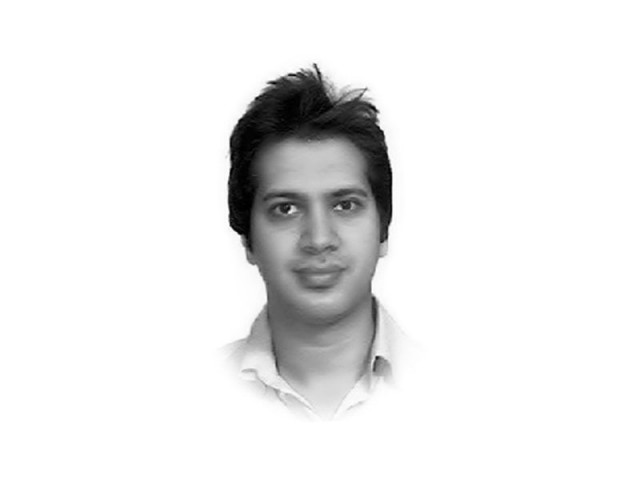The road not taken
With years, the Objective Resolution has acquired monumental significance — second only to independence perhaps

The writer is the Barrister of Lincoln’s Inn
The Constituent Assembly, if I may remind the readers, was set up pursuant to the Indian Independence Act of 1947 and was a provisional arrangement as its members were not representatives of electorate. They did not embody the popular will. Yet its members took it upon themselves to pass the Resolution that in years would become the very ethos of social contract (and in many ways limit its scope) between the people and the state of Pakistan.

All too well if it had been well thought out! The Resolution was moved in utter haste. Public opinion on it was not solicited nor was any sub-committee of the House formed to consider implications of the draft. Only on a notice of four days, without so much as mentioning the Resolution in Agenda Papers, and without any deliberation, consultation or in-depth analysis; the Resolution was moved in the House.
Contrary to widely instructed notion, the Resolution was wildly divisive. The minority felt enraged — not just with its contents but also the manner in which it was presented to the House. Several amendments were proposed to the draft. They were put to vote and were all rejected by a vote count of 21 to 10. Those who favoured the amendments were all Non-Muslims. Those who opposed, were all Muslims. The Resolution was adopted unchanged on March 12, 1949. Seeds of otherisation were sown then!
Bhupendra Kumar had warned through the passage: “…a political adventurer, a Yanshikai, or a Bacheha-e-Sakao may find a chance to impose his will and authority on this state. He may find a justification for it in this Preamble.” Did he stand vindicated? I will leave this value judgment to you!
With years, the Objective Resolution has acquired monumental significance — second only to independence perhaps. No other document, resolution, report or event has received such attention. It became substantive part of our Constitution by virtue of Article 2A in Zia’s era, inserted through President’s Order No 14 of 1985, and has been variously described as “grundnorm”, as “Cornerstone of Pakistan’s legal edifice”, a “bond which binds the nation”, a document from which Pakistan “must draw its inspiration”, a “beaconlight” and “key” to understanding our Constitution. Most importantly, the Supreme Court has now recognised a basic structure to our Constitution and Islam is one of its salient or defining features on the basis of Article 2A that cannot be repealed, abrogated or substantively altered.
Never mind the attention it has drawn, the need to move this Resolution was never established then nor has it been justified since — apart from run-of-the-mill degenerative explanations we read in textbooks. Wasn’t an independent homeland sufficient affirmation of faith? Since it was merely a projection of members’ imagined fears of Hindu-majoritarianism in United India; they only sought to cleave a new “majority” using religion as instrument. This also explains why it was always rigidly interpreted. Greater the significance accorded to it, the more regressive its interpretation became. Its import, in effect, only became exclusionary. In addition, it equipped our ill-conceived ideology with the puritan streak. Chattopadhya was right: “This Resolution in its present form epitomises… spirit of reaction. That spirit will not remain confined to the precincts of this House. It will send its waves to the countryside as well…The administration is ruthlessly reactionary, a steam-roller has been set in motion against the culture, language and script of the people. And on the top of this all, by this Resolution you condemn them to a perpetual state of inferiority.” If only Zafarullah Khan had the foresight then, who chose to vociferously defend it, that one day his sect on the basis of the same Resolution, too, could be ushered out of the fold of “equals”! The state has since employed ideological puritanism triggered by the Resolution to curtail space for dissent. Disappearances of the bloggers is one case in point!
The “ideal”, as glorified by Liakat Ali has long been deserted. Deserted, because it had disowned itself. Every time the state patronised yahoos; that “ideal” suffered a blow. Lately, it was deserted again in Chakwal. Now as faithful construct an assassin’s — correct that; a terrorist’s shrine. That “ideal”, in fact, never existed. Just what do words; “democracy, freedom, equality, tolerance, and social justice as enunciated by Islam” as used in the Resolution even mean? All words — loosely strung together conveying little. The reference to “ideal” was only a hoax to defer all social reform. Then kill it. As for whose Islam? It has resulted in another rate race among different Sunni schools of thought still chasing “majority” while the state belatedly realising its limits, allows derogations on account of personal laws (an exception to “whose Islam?”).
On that fateful day of March, we had an existential choice to make. We could have owned Jinnah’s Speech of August 11, 1947 addressed to the very same Constituent Assembly — and built on his vision. But we chose the other road diverging in the woods. And with apologies to Frost, it has been — always is, a road not taken, that made all the difference.
Published in The Express Tribune, January 26th, 2017.
Like Opinion & Editorial on Facebook, follow @ETOpEd on Twitter to receive all updates on all our daily pieces.














COMMENTS
Comments are moderated and generally will be posted if they are on-topic and not abusive.
For more information, please see our Comments FAQ